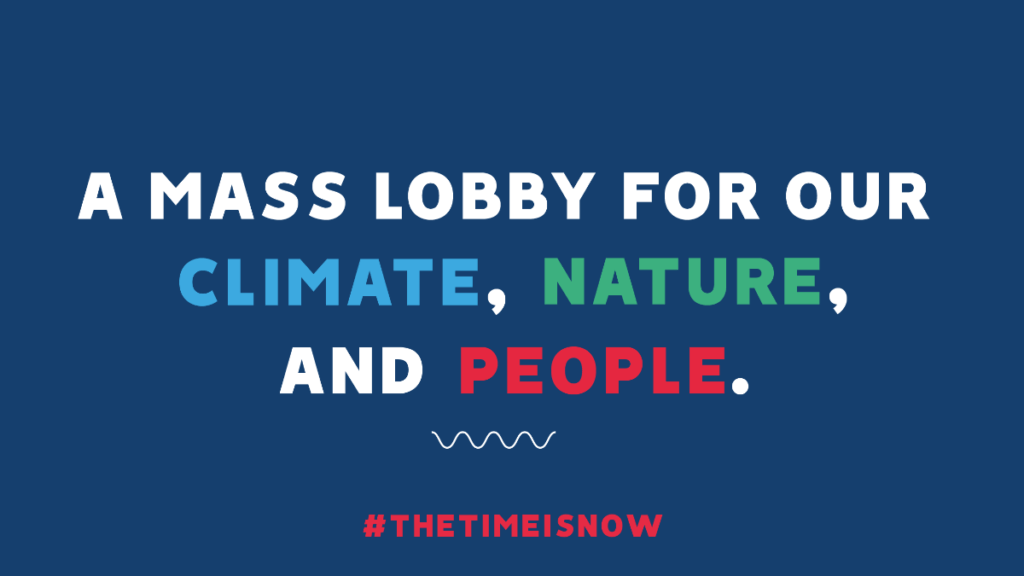
Patrick works for Green Alliance as the policy assistant for the Greener UK Unit. Greener UK is a group of 14 major environmental organisations, with a combined public membership of over 8 million, united in the belief that leaving the EU is a pivotal moment to restore and enhance the UK’s environment. He holds an MSc in Environmental Technology from Imperial College London focusing on the impact of Brexit on British agriculture. He has worked in environmental roles in the public sector for the NHS and also in the charitable sector, and helps run the Divest Parliament campaign.

The penny appears to have dropped for the United Kingdom. Following a flurry of public interventions, from Extinction Rebellion to the school strikes, public concern is at an all-time high. The latest issue of YouGov’s Top Issues Tracker finds 27% of Britons hold the environment in their top three issues facing the country, behind only Brexit and health. This concern coincides with new evidence highlighting the scale of the emergency, such as the recent IBPES report documenting an accelerating extinction crisis.
Facing the twin challenges of Brexit and ecological breakdown, the NGO community came together in 2016 as Greener UK. The coalition now has 14 partners and over 50 supporting organisations and networks. We have helped secure important wins, including environmental non-regression in the Withdrawal Agreement and the first comprehensive Environment Bill in decades. Furthermore, we have undertaken the task of analysing the government’s transfer of EU environmental law onto the UK’s statue book via statutory instruments, forcing improvements in some places and exposing deficiencies in others.
However, wider political developments are stalling inside-track progress and many MPs have yet to realise that nature is bigger than politics. MPs urgently need to understand they have the public mandate to do the right thing for nature and put us on a “war footing” to respond to the emergency that they themselves have declared. That is why Greener UK, in partnership with the Climate Coalition, is hosting The Time is Now: a mass lobby for nature, climate and people.
On 26 June, people from across the UK will descend on Parliament to tell their MPs that urgent action is required. Partners have received overwhelmingly positive reactions from supporters, meaning The Time is Now is set to be the largest environmental mass lobby ever, with 10,000 expected attendees from over 95% of constituencies. Among them will be wildlife rangers, policy experts and scientists. From beyond the sector, school students, surfers, doctors and Women’s Institute members will demonstrate buy-in from wider society.
Whether your concern is climate, clean air or curlews, we need more substance from politicians. This means more than just setting a net-zero emissions target – ambitious policies to get there are urgently needed. Action is needed on housing decarbonisation, nature-based carbon sequestration, resource efficiency and renewable energy. MPs must bring the ban on the sale of fossil-fuel vehicles forwards to 2030. The economic transformation these policies bring about must be just: workers in adversely affected industries need support in reskilling and changing occupation, with no vulnerable communities left behind.
Nature’s recovery must be secured by ensuring that the Environment Bill and other legislation does more than just scrap plastic straws. The Office for Environmental Protection needs more independence, funding security and access to stronger legal remedies than are provided for in the draft Environment Bill. Legally binding targets, with milestones, must be part of the final bill, using the Climate Change Act as a model. Co-ordination with Scotland, Wales and Northern Ireland is essential in order to ensure a joined-up approach.
These policies will need adequate funding: we are calling for 2% of the UK’s GDP be devoted to addressing our impact on the planet. Moreover, given that the ecological footprint of the UK extends way beyond its shores, more work is required in the international arena. We are therefore calling for MPs to lead global efforts in responding to the crisis, such as raising the level of ambition at upcoming United Nations climate and biodiversity conferences and providing assistance to poorer countries to develop sustainably.
Join us on 26 June. To get these messages across to your MP and for a historic day of fun, conversation, and demonstration by signing up here. There are a number of satellite events throughout the day before the main lobby begins at 1pm. For more information please see our resource pack.
[registration_form]
The last walk had a ‘Wall’ where people who simply coudn’t attend were able to declare their support. It would be good to have that facility for this, but is it too late to arrange?
It’s all great stuff but I think it would be more persuasive if we had a clearer idea of what it should actually look like – the People’s Manifesto had a stab at it. What are the outcomes ? Yes, reverse the decline in biodiversity – but that is so big its hard to get a grip on.
And in the meantime inertia is slipping through the net – in a talk last week I compared natural flood defence with woodfuel: the former, we’ve had examples on the ground from nearly 20 years ago (I was involved in restoring the course of a New Forest river and the results in terms of holding up peak flows was spectacular) and are still arguing over the Pickering Beck; the latter, in just over 10 years has gone from a standing start to 16,000 30-500kw installations and energy production of half Hinkley Point – for just £1 billion (Hinkley Point will cost £20 billion).
Over a whole range of issues we know what to do but the arteries of action are clogged by the cosy inertia of institutions that have their way of doing things and have no incentive or leadership to change – and that can include environmental organisations and thinking, too. And it isn’t just about the money – we could probably solve the risk of flooding across most of the country simply by redirecting money, rather than spending new money.